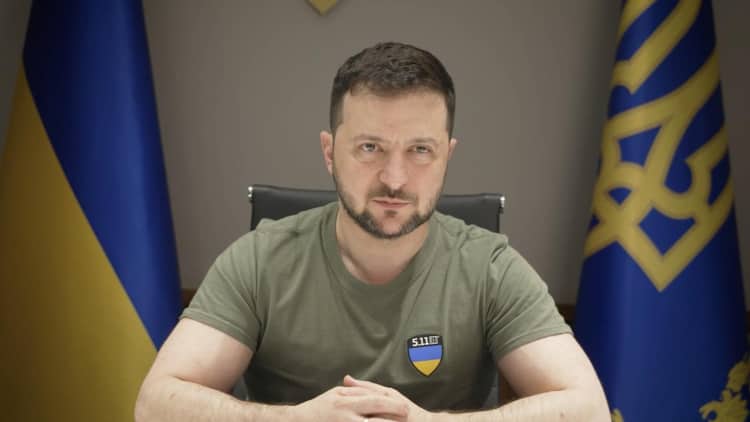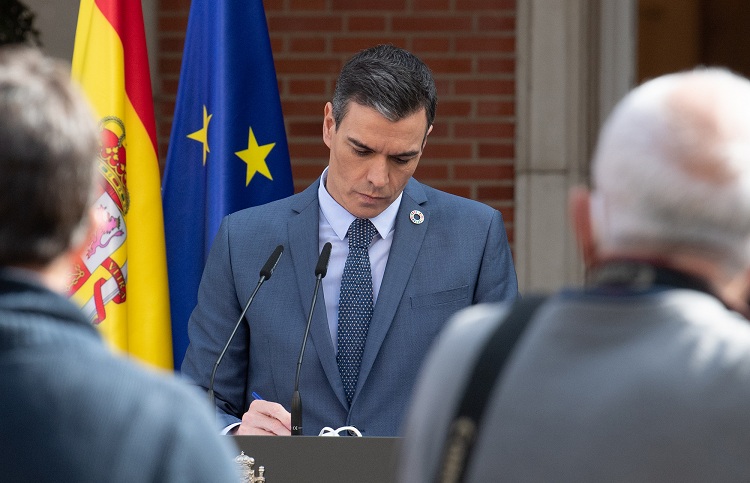The Diplomat
NATO summit to be held in Madrid on 29 and 30 June will involve an unprecedented deployment in terms of security and the presence of international leaders in Spain, as well as restrictions on mobility in the capital, with traffic cuts and disruptions to public transport.
According to government sources, Spain has been working for months in coordination with NATO to prepare for the Summit, which is being held in a complex international context with the war in Ukraine, the accession plans of Finland and Sweden and the Alliance’s decision to approve a new Strategic Concept in Madrid that will set its course for the next ten years.
In total, between 40 and 50 international delegations at the level of heads of state and government are expected to participate. These will include NATO Secretary General Jens Stoltenberg, the 30 Allied countries, four invited Asia-Pacific countries (Australia, New Zealand, Japan and South Korea), four other countries that are members of the European Union but not of the Alliance, as well as the heads of the European Commission and the European Council.
A formal invitation will also be extended to Ukraine to take part in the Madrid Summit, although the attendance of its president, Volodymir Zelenski, will not be known until the last minute because it will be subject to the evolution of the conflict and his possibilities of leaving the country, reports Europa Press.
For its part, the White House confirmed on Wednesday that the President of the United States, Joe Biden, will arrive in Madrid on the 28th, one day before the formal start of the Summit. On the same day, a dinner will be hosted by the King and Queen of Spain at the Royal Palace, to which the heads of state and government of the countries taking part in the summit, together with their companions, have been invited.
The second dinner will be held on Thursday 29th after the first day of the Summit and will be hosted by the President of the Government, Pedro Sánchez. This is a Euro-Atlantic dinner, which will be attended by the 30 allied states as well as the EU countries that do not form part of the Alliance – Austria, Finland, Ireland, Malta and Sweden – and will be held at the Prado Museum and will include a cultural visit.
A parallel agenda is also planned for those accompanying the leaders, in which Queen Letizia is expected to take part. The programme includes visits to the Royal Theatre, the Reina Sofía Museum, the Royal Site of San Ildefonso and the Royal Glass Factory of La Granja (Segovia).
More than 5,000 guests
The Summit will be held in three Ifema pavilions occupying a space of more than 50,000 square metres and the organisers expect the participation of more than 5,000 attendees, including delegations, press and services.
The area for leaders and delegates will include the central space of the Summit, the Atlantic Council Room, which is under construction with a size of more than 1,700 square metres, seating for 290 people, 20 double simultaneous interpretation booths and a technical control room.
In addition, there will be a second room for parallel meetings of ministers, measuring 1,400 square metres and seating 175 people, and another 20 rooms for bilateral meetings between the leaders and their delegations. Moncloa has not yet confirmed whether there will be a bilateral meeting between Biden and Sánchez, and they point out that the agendas are still being worked on.
fema will also host the Security Coordination Centre (CECOR), which will manage all the arrangements deployed with the participation of all the organisations. The Minister of the Interior, Fernando Grande-Marlaska, has announced that an unprecedented police operation is being finalised to ensure that the Summit is “a success”.
The international press centre will be open 24 hours a day and will cover an area of 14,000 square metres for between 1,200 and 1,500 journalists. It will also house 13 rooms for press conferences, one of them with a capacity for 350 people.
Mobility in Madrid
This organisation and the movement of the leaders between the different points that will host the events will mean significant restrictions on mobility in Madrid and disruptions to public transport.
In any case, Moncloa stresses that the Summit will have a major impact on Madrid and Spain as a whole, both in economic terms and in terms of international projection, and assures that coordination with the Community of Madrid and the City Council of the capital is going very well.
Albares: attention to the southern flank
Yesterday, at the opening of a seminar on the summit at the Ministry of Foreign Affairs, the head of the department, José Manuel Albares, stated that it will be “the summit of democracies” and that decisions will have to be taken there to guarantee not only the security of citizens but also the principles of the European Union.
Albares recalled that, at the summit, the allies have the objective of approving the new strategic concept for the next decade, and they must also face the change in the geopolitical scenario that Russia’s “illegal” aggression against Ukraine has brought about.
He added that in addition to dealing with dangers from the east, the Alliance’s new 360-degree approach means recognising the importance of addressing challenges from the southern border, especially from the Sahel.







